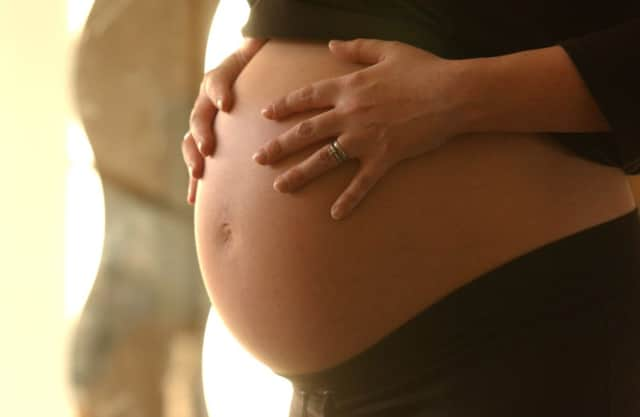Pregnancy ‘can protect women from breast cancer’


Scientists examined the genetic material of women who had and had not given birth and noted differences in elements related to key processes that, when they go awry, can increase the risk of developing cancer.
They plan to develop treatments that mimic these changes in women who have not been pregnant, in order to reduce their risk of developing cancer.
Advertisement
Hide AdAdvertisement
Hide AdStudy leader Dr Julia Santucci-Pereira, at the Breast Cancer Research Laboratory at Fox Chase Cancer Centre in Philadelphia, said: “We are trying to understand how the natural process of giving birth helps prevent cancer.
“If we understand it, we can try to mimic this process somehow, especially in women who are at high risk of developing the disease.”
In one study Dr Santucci-Pereira used sophisticated sequencing technology to compare the genetic activity of cancer-free breast tissue samples from more than 200 pre- menopausal women – 30 of whom had never given birth.
They spotted differences in the expression of genes associated with the process cells undergo to become specialised types, known as differentiation.
Dr Santucci-Pereira added that problems in differentiation can cause cells to become cancerous.
In addition, she noticed clear differences between mothers and women who had never been pregnant in the expression of genes related to the development of breast anatomy.
This process must be well regulated in order to avoid cancer, her team concluded.
In another study Dr Santucci-Pereira was able to identify additional genetic changes that help explain how pregnancy protects against breast cancer.
Advertisement
Hide AdAdvertisement
Hide AdLooking at women who had undergone menopause, they found that mothers and non-mothers displayed differences in how their genes were modified – specifically, by being tagged with chemical groups, which influences how those genes are used by the body.
She said: “Although this research brings scientists closer to understanding why pregnancy protects the body from cancer, how that happens remains a puzzle.”
One possibility, she said, is that the hormone produced during pregnancy – human chorionic gonadotropin (HCG) – induces these changes.
Previous research in animals and human cells has found that adding HCG can produce other genetic changes tied to differentiation and development.
In a third study Dr Santucci-Pereira looked deeply at differences in stretches of genetic material dubbed “non-coding”, meaning they do not contain instructions for making protein.
These are regions scientists once thought were “useless” but now realise interact with other parts of the genome and enhance their function.
The next step is to try to understand what these non-coding regions do, including their role in cancer, Dr Santucci-Pereira said. She identified 42 differences in non-coding regions between eight mothers and eight non-mothers.
She suggests that it is possible these non-coding regions work with the genes identified in the other two studies to induce changes in the differentiation and development processes, thereby protecting women who have given birth.
More than 4,500 women are diagnosed with breast cancer in Scotland each year.